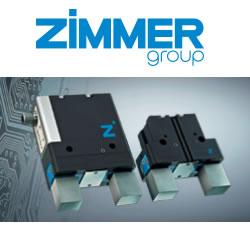Universal Robots Offers Rapid Response Delivery, Enabling Manufacturers to Meet Tax Deduction Deadline
With an industry leading manufacturing process,, Universal Robots can meet delivery deadlines for the Section 179 tax deduction incentive that can dramatically reduce the cost of collaborative robots to address repetitive and difficult-to-fill manufacturing jobs while stretching year-end budgets
Ann Arbor, November 19, 2018: With the booming economy and low unemployment, manufacturers of all sizes are struggling to fill repetitive and undesirable manufacturing jobs. With the help of the Section 179 tax deduction, US businesses may be able to significantly stretch their use-it-or-lose-it 2018 budgets and purchase collaborative robots to take on the repetitive manufacturing tasks that workers dont want. Section 179 requires that qualified equipment and off-the-shelf software is purchased and placed into service by December 31, 2018, but with its unique quick-ship program , Universal Robots (UR) can make that happen. The company is announcing that qualified orders received and processed by December 16, 2018 will be delivered by the end of the year.
"Manufacturers are struggling to fill jobs so they can meet their production demands, and many cant turn to traditional automation, which is too expensive and complex, especially for small and midsized businesses," says Stuart Shepherd, Regional Sales Director of Universal Robots Americas division. "UR cobots are cost-effective and easy to implement, and with the Section 179 tax deduction they can be even more affordable. Businesses should consult their tax expert right away to see if they can take advantage of this opportunity, and well do our part to help them meet eligibility requirements."
The National Association of Manufacturers reports a record-breaking 506,000 open jobs in July 2018, and a study from the Manufacturing Institute and Deloitte projects that 2 million jobs within the industry will go unfilled by the year 2025. To address this gap, manufacturers of all sizes are implementing automation tools such as cost-effective, flexible, safe and easy-to-use collaborative robots (cobots). At the same time, many companies have use-it-or-lose-it equipment budgets. The Section 179 tax deduction is an easy way to stretch those year-end budgets to meet automation goals. Section 179-qualified financing and leasing agreements can help businesses save even more (consult your tax expert for details).
About Universal Robots
Universal Robots was co-founded in 2005 by the companys CTO, Esben Østergaard - the 2018 Engelberger Award Winner - who wanted to make robot technology accessible to all by developing small, user-friendly, reasonably priced, flexible industrial robots that are safe to work with. Since the first collaborative robot (cobot) was launched in 2008, the company has experienced considerable growth with the user-friendly cobot now sold worldwide. The company, which is a part of Teradyne Inc., is headquartered in Odense, Denmark, and has subsidiaries and regional offices in the United States, Germany, France, Spain, Italy, Czech Republic, Poland, Turkey, China, India, Singapore, Japan, South Korea, Taiwan and Mexico. In 2017, Universal Robots had a revenue of USD 170 million. For more information, please visit www.universal-robots.com or read our blog at blog.universal-robots.com.
Featured Product

